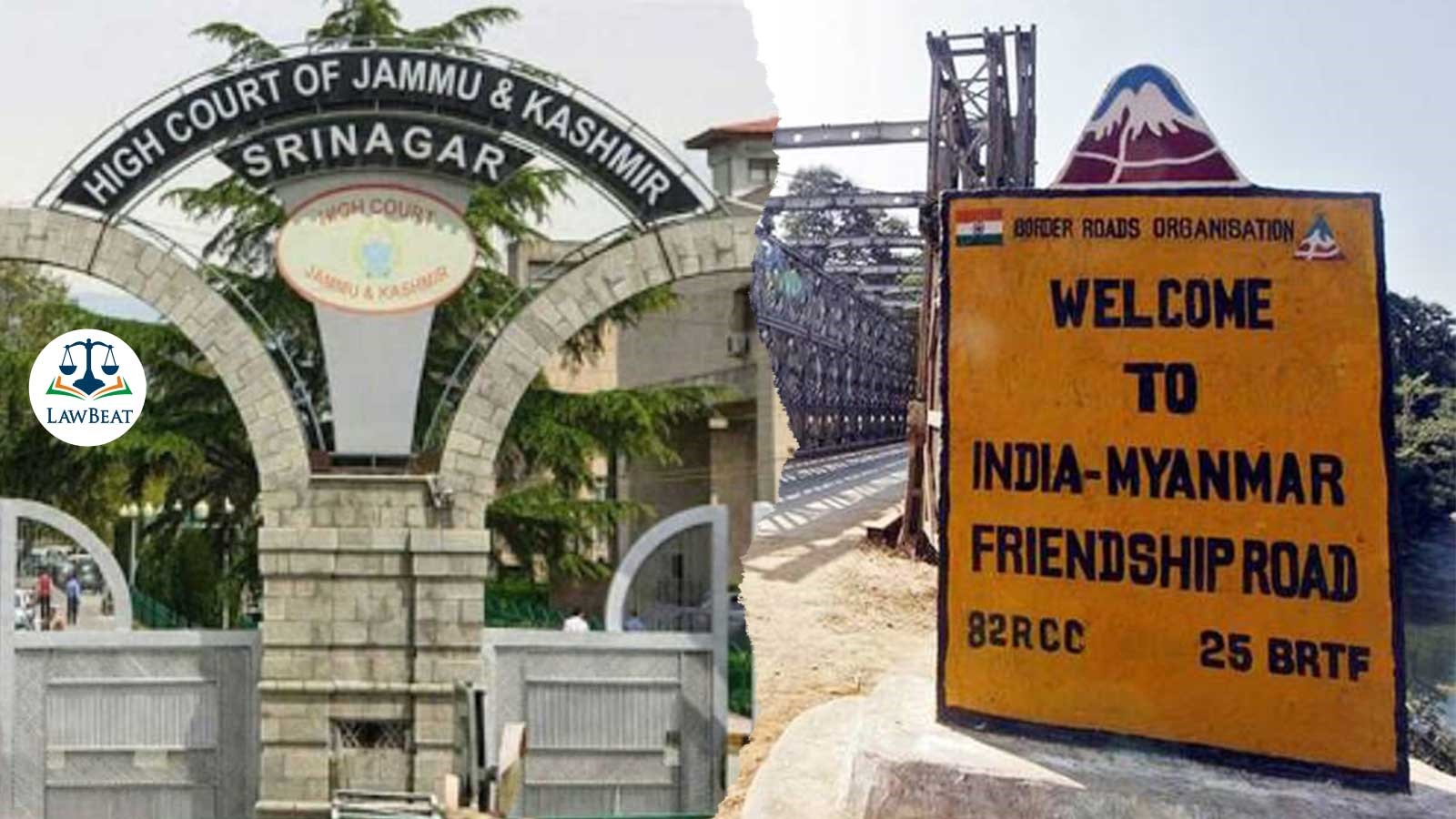Law Does Not Permit Discrimination Between a Foreign National and Indian National in Bail Matters : J&K and Ladakh HC

“The Court can impose different conditions which may be necessary to ensure that the accused will be available for facing trial but it cannot be said that the accused will not be granted bail because of being a foreign national,” stated the court
The Jammu & Kashmir and Ladakh High Court has reaffirmed that the law does not allow discrimination between foreign nationals and Indian nationals in the matter of granting bail. The court emphasised that the decision to grant bail must be based on the specific facts and circumstances of each case, and while conditions may be imposed to ensure the accused is available for trial, bail cannot be denied solely on the grounds of nationality.
The court, presided over by Justice Sindhu Sharma, was addressing a petition filed by a foreign national accused of offences under Section 370 of the Indian Penal Code, as well as Sections 14A and 14C of the Foreigners Act, 1946. The petitioner, Shagufta Bano, along with co-accused Asmat Ara and Mohammad Shamim Bhat, were facing allegations of human trafficking following a search of their residence in Budgam, where non-local women were found. This lead to their arrests on October 27, 2022.
Initially, the accused were granted interim bail by the Judicial Magistrate First Class, Budgam, on November 25, 2022, which was later made absolute in December. However, during subsequent proceedings involving other co-accused individuals, the Additional Sessions Judge, Budgam, denied bail to 14 Myanmar nationals and, in the same order, suo motu cancelled Bano's bail, remanding her to judicial custody on August 10, 2023.
Represented by Advocates Mir Majid Bashir and Tawfiq Hussain Khawaja, Bano challenged the cancellation of her bail, arguing that the trial court acted improperly by revoking her bail without issuing any prior notice. It was further contended that there was no new evidence or compelling reason to justify the cancellation, particularly as she had cooperated with the investigation and posed no flight risk. Additionally, it was emphasised that her status as a mother of two, including a minor child requiring her care, and that she had been residing in India with her husband for over 13 years. Bano also argued that the allegations of human trafficking lacked substantial evidence and that she herself was a victim, having been wrongfully implicated in the case.
Opposing the petitioner’s plea, Government Advocate Faheem Shah, argued that Bano, a foreign national originally from Burma, present day Myanmar, was residing in India without valid documentation. During the investigation, it was revealed that Bano, along with her co-accused, was involved in bringing women from Burma for prostitution, with the help of associates, in exchange for money. It was submitted that the charges framed under Section 370 IPC and the Foreigners Act against the petitioner, were serious, warranting her continued detention.
The court reviewed the facts and legal precedents, including the Supreme Court rulings in Gurcharan Singh v. State (Delhi Administration) and Sanjay Chandra v. CBI, emphasising that bail is a matter of judicial discretion. The court highlighted that key factors in granting bail include the nature and seriousness of the offence, the accused's relationship to the victim and witnesses, the risk of fleeing from justice, the possibility of reoffending, the threat to the accused's life due to potential conviction, the likelihood of tampering with evidence, and the overall history of the case and investigation.
The court further underscored that the objective of bail is to ensure the accused appears at trial, not to punish or prevent; therefore, deprivation of liberty should be viewed as a punishment unless necessary to secure trial attendance.
Furthermore, the court observed : “It is well settled that law does not authorize or permit any discrimination between a foreign national and Indian national in the matter of granting bail and the same has to be considered on the facts and circumstances of each case. The Court can impose different conditions which may be necessary to ensure that the accused will be available for facing trial but it cannot be said that the accused will not be granted bail because of being a foreign national.”
The court noted that in this instance, the petitioner was a foreign national overstaying in India, with allegations under Sections 14A and 14C of the Foreigners Act, which carry penalties ranging from two to eight years. It pointed out that the petitioner was arrested on August 10, 2023, and has been in custody since her bail cancellation. Further, the court stated that the investigation is complete, and while the charges were serious, the petitioner’s prior bail, granted on November 25, 2022, and made absolute by December 28, 2022, weighed heavily in her favour.
The court also considered the petitioner’s status as a mother, and held : “Keeping in view the fact that the petitioner is a woman having two minor child and a small daughter, aged one and a half years, who are dependent on her and require her care and attention, and considering that her incarceration has deprived her of the opportunity to provide such care, coupled with the fact that she was already on bail before it was cancelled. The petitioner is residing here for the last so many years and there are no sufficient reasons to have a reasonable apprehension that the petitioner will flee from justice and it is also not expedient, in the interest of justice, to keep the petitioner in custody at this stage in these circumstances.”
Consequently, the court granted bail to the petitioner, allowing her to be released upon providing a personal bond and two sureties, one from her husband and another approved by the trial court.
Cause Title : Shagufta Bano v UT of J&K [CRM(M) No. 447/2023 and other connected matters]
